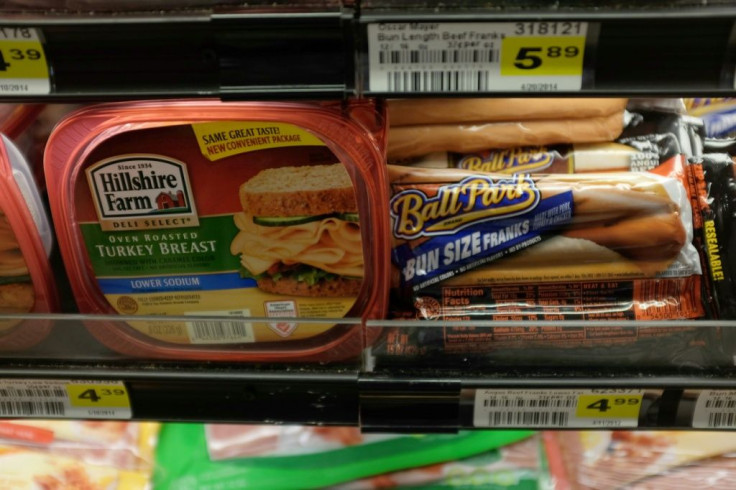US Meat Giant Shutters Beef Plant For Coronavirus Testing
US meatpacking giant Tyson Foods on Thursday said it would temporarily close a massive beef slaughterhouse in Washington state to test its employees for coronavirus.
The closure of the Tyson Fresh Meats facility in Pasco, Washington, which the company said produces enough beef in one day to feed four million people, comes as slaughterhouses emerge as potential hotspots for spreading the disease.
A spokeswoman for Tyson declined to say whether any workers had tested positive.
In a statement, the company said it had taken measures such as creating more space in break rooms and putting dividers between workstations, as well as checking workers' temperatures and mandating that they wear masks.
"Despite these efforts, the combination of worker absenteeism, COVID-19 case and community concerns has resulted in a collective decision to close and test all team members," Tyson Fresh Meats group president Steve Stouffer said.
Workers will get paid and be asked to self-isolate as they wait for test results, which will be used to decide when to reopen the plant, the company said.
"The closure will mean reduced food supplies and presents problems to farmers who have no place to take their livestock. It's a complicated situation across the supply chain," Stouffer wrote.
Several other slaughterhouses in the United States have closed after coronavirus broke out among the staff, including a massive pork plant in South Dakota run by Smithfield Foods that handles four to five percent of the country's production.
JBS has shut two cattle slaughterhouses, one in Pennsylvania and the other in Colorado, while Tyson has closed a hog factory in Iowa and also announced it would close another one in Indiana to test its staff.
It's unclear if these plant shutdowns will lead to a meat shortage, particularly since many restaurants are closed or have curtailed their service.
A World Bank report on Thursday warned temporary trade restrictions at the national level could snarl supply chains for food worldwide.

While predicting generally stable agricultural prices this year, the World Bank said there could be "problems with food availability (and price spikes) at the local level due to supply chain disruptions and border closures in response to containment strategies that may restrict food flows or movement of labor."
According to United Food and Commercial Workers (UFCW), the union representing agri-food workers, activity has been temporarily suspended at 13 different sites -- employing a total of 24,500 people -- over the last two months.
This could lead to a 25 percent drop in pig slaughtering capacity in the country and a 10 percent drop for cows.
The union called on authorities to better protect slaughterhouse employees by increasing testing or making social distancing measures in plants mandatory. To the UFCW's knowledge, 13 people working in slaughterhouses or meat processing plants have died from COVID-19.
While factory shutdowns have not yet triggered a widespread meat shortage in stores, the risk has increased, according to experts.
Rachel Gantz, head of communication for the National Pork Producers Council, said that for now the crisis is "on our farms and currently there aren't any supply issues."
"There could be issues over the long term if we don't resolve plant disruptions," she told AFP.
"If additional reductions in slaughter and processing operations occur over an extended period, then by mid-May changes in product availability may be realized," said Glynn Tonsor, an agricultural economist at Kansas State University.
In the short term, a recent report from the Department of Agriculture showed that the United States "began April with large supplies of meat as beef, pork and chicken supplies were all above prior year levels," Tonsor told AFP, noting that demand in the food service sector remained low in April.
© Copyright AFP 2024. All rights reserved.





















